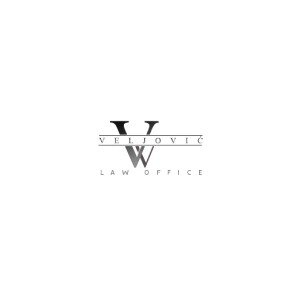Best Private Equity Lawyers in Belgrade
Share your needs with us, get contacted by law firms.
Free. Takes 2 min.
List of the best lawyers in Belgrade, Serbia
Legal guides written by Business Law office - Advokatska Kancelarija:
- Why Invest In Serbia
About Private Equity Law in Belgrade, Serbia
Private Equity in Belgrade, Serbia refers to investments made directly into private companies or the buyout of public companies that result in their delisting from stock exchanges. The private equity market in Serbia is growing, with local and international investors increasingly seeking opportunities in diverse industries such as technology, manufacturing, healthcare, and real estate. Private equity law in Belgrade governs a range of activities, from fundraising and due diligence to deal structuring, regulatory compliance, and exit strategies. Lawyers specializing in this field assist both local entrepreneurs and foreign investors in navigating complex legal and regulatory landscapes to structure successful investment deals.
Why You May Need a Lawyer
Private equity transactions are complex and typically involve significant amounts of capital, multiple parties, and strict regulatory oversight. Here are some common situations where the assistance of a lawyer is essential:
- Structuring investment funds and partnerships
- Negotiating and drafting investment and shareholder agreements
- Conducting legal due diligence on target companies
- Ensuring compliance with local regulations, including foreign investment and antitrust laws
- Advising on tax implications and optimal structures for transactions
- Resolving disputes among investors or between investors and founders
- Guiding on exit strategies such as sales, acquisitions, or public offerings
Legal assistance ensures that your interests are protected, risks are minimized, and deals are compliant with Serbian law.
Local Laws Overview
Private equity activity in Belgrade, Serbia is governed by several key legal frameworks:
- Company Law - Sets the rules for forming, operating, and dissolving private and public companies, including shareholder rights and governance structures.
- Law on Capital Market - Regulates securities markets and is relevant for private equity activities involving public company takeovers or exits via IPOs.
- Foreign Investment Laws - Outlines the rights of foreign investors, restrictions in certain sectors, and procedures for investment approval when required.
- Competition Law - Ensures that investments and acquisitions do not distort market competition. Transactions above certain thresholds require approval from the Commission for Protection of Competition.
- Tax Laws - Cover the taxation of investment structures, profit distribution, capital gains, and potential tax incentives for investors.
- Labor and Employment Laws - Affect due diligence and negotiations involving workforce management or restructuring in target companies.
Because private equity deals often involve cross-border elements and multiple regulatory touchpoints, expert legal guidance is crucial for compliance and successful deal closure.
Frequently Asked Questions
What is private equity and how does it differ from venture capital in Serbia?
Private equity involves investing in established companies, usually through buyouts to improve operations and profitability before selling. Venture capital is a subset that focuses on early-stage or start-up companies. In Serbia, the legal processes are similar but may have different regulatory and tax implications.
Is foreign investment allowed in Serbian private equity deals?
Yes, Serbia encourages foreign investment, although some sectors have restrictions or require prior approval. Legal due diligence is essential to verify compliance with sector-specific rules.
What are the key legal documents in a private equity transaction?
Key documents include the investment agreement, shareholders agreement, due diligence reports, and sometimes management agreements or loan instruments, depending on deal structure.
Do I need approval from the Serbian Competition Commission for a private equity investment?
Acquisitions or investments meeting certain thresholds require prior notification and approval from the Commission for Protection of Competition to ensure the deal does not harm market competition.
How is due diligence conducted in Serbia?
Legal due diligence involves reviewing the target company’s corporate structure, contracts, litigation history, compliance with laws, property ownership, intellectual property, employment matters, and financial health.
Are there tax incentives for private equity investors in Serbia?
There are some tax incentives available, particularly in priority sectors or regions. Each investment should be reviewed individually to maximize potential benefits and plan for efficient repatriation of profits.
How is an exit typically structured in Serbian private equity deals?
Exits can occur through trade sales, secondary buyouts, or initial public offerings (IPOs). The legal considerations vary based on exit route, including regulatory approvals and disclosure requirements.
What protections are available for minority investors?
Serbian company law provides certain protections for minority shareholders, such as preemptive rights and rights to information. Custom protections can also be negotiated into shareholder agreements.
What are common risks in Serbian private equity deals?
Risks include regulatory changes, market volatility, undisclosed liabilities, disputes among shareholders, and challenges in enforcing agreements. Legal counsel can help identify and mitigate these risks.
How long does it take to complete a private equity transaction in Serbia?
The timeframe depends on deal size, complexity, due diligence findings, and regulatory approval requirements. Typical transactions can take between a few months to over a year to complete.
Additional Resources
Here are some helpful resources and organizations for further guidance on private equity in Belgrade, Serbia:
- Serbian Business Registers Agency - Key resource for company information and registration processes.
- Commission for Protection of Competition - Regulates antitrust and merger approvals.
- Serbian Chamber of Commerce - Offers information and support for local and foreign businesses.
- National Bank of Serbia - Provides regulatory guidance, especially for cross-border investments.
- Ministry of Economy - Source for investment policies and sector-specific regulations.
- Local business and industry associations focused on private equity and venture capital.
Next Steps
If you are considering a private equity investment or transaction in Belgrade, Serbia, it is important to proceed methodically:
- Define your objectives and potential investment targets or partners.
- Consult a lawyer with expertise in private equity and cross-border transactions in Serbia.
- Conduct preliminary research or feasibility analysis with your legal advisor.
- Engage your lawyer to carry out thorough legal due diligence and review deal documentation.
- Ensure compliance with all regulatory and tax requirements before moving forward.
- Negotiate your interests and finalize agreements under legal guidance.
A qualified lawyer can provide strategic advice, identify risks and opportunities, and guide you through every step of your private equity deal in Belgrade, Serbia. Early legal intervention is key to avoiding costly mistakes and ensuring a smooth transaction process.
Lawzana helps you find the best lawyers and law firms in Belgrade through a curated and pre-screened list of qualified legal professionals. Our platform offers rankings and detailed profiles of attorneys and law firms, allowing you to compare based on practice areas, including Private Equity, experience, and client feedback.
Each profile includes a description of the firm's areas of practice, client reviews, team members and partners, year of establishment, spoken languages, office locations, contact information, social media presence, and any published articles or resources. Most firms on our platform speak English and are experienced in both local and international legal matters.
Get a quote from top-rated law firms in Belgrade, Serbia — quickly, securely, and without unnecessary hassle.
Disclaimer:
The information provided on this page is for general informational purposes only and does not constitute legal advice. While we strive to ensure the accuracy and relevance of the content, legal information may change over time, and interpretations of the law can vary. You should always consult with a qualified legal professional for advice specific to your situation.
We disclaim all liability for actions taken or not taken based on the content of this page. If you believe any information is incorrect or outdated, please contact us, and we will review and update it where appropriate.

















